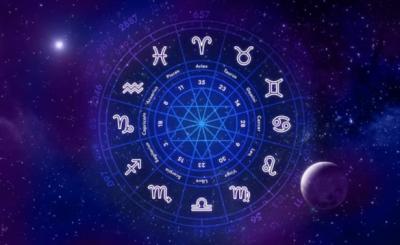Categories
Tags
Archives
Indian Astrology: A Timeless Science Guiding Modern Lives
-
Indian astrology, also known as Vedic astrology or Jyotish Shastra, has been a foundational element of Indian culture and tradition for thousands of years. Rooted in ancient Vedic texts, this profound system of cosmic interpretation offers not just predictions but meaningful guidance on life, health, career, marriage, and spirituality. In the digital age, interest in Indian astrology has not only sustained—it has grown exponentially. With modern technology, the timeless wisdom of the stars is now more accessible than ever.
From kings of ancient times to CEOs of today, many individuals have turned to astrology to make informed decisions and better understand their destiny. But what exactly is Indian astrology, how does it work, and why is it still so relevant?
The Origin and Depth of Indian Astrology
Indian astrology traces its origins back over 5,000 years, derived from sacred Vedic scriptures. It is based on the belief that the positions of celestial bodies—such as the Sun, Moon, and planets—at the time of one’s birth have a direct impact on a person’s personality, life events, and fate. Unlike Western astrology, which follows a solar calendar, Indian astrology uses the sidereal zodiac, which is aligned with the actual constellations in the sky.
Key components of Indian astrology include:
-
Kundli (birth chart): A unique map of the sky at the time of birth.
-
Dasha system: Planetary periods that influence life phases.
-
Nakshatras: 27 lunar constellations that provide granular insight.
-
Rashi (zodiac signs): Twelve signs that categorize personality and behavior.
This system doesn’t just rely on the Sun sign but considers the Moon sign, ascendant, and detailed planetary placements, offering more accuracy and nuance.
Relevance of Indian Astrology in Modern Life
Despite being rooted in ancient philosophy, Indian astrology remains remarkably relevant in the 21st century. As life becomes more complex, many people turn to astrology not only for predictions but also for self-awareness, psychological clarity, and strategic decision-making.
Here are a few modern applications:
1. Career Planning with Astrology
Choosing the right career is one of life’s biggest decisions. Indian astrology offers insights into an individual’s natural inclinations, strengths, and timing for success through planetary combinations and houses related to profession. Long-tail search terms like “career prediction through Vedic astrology” or “job change timing using astrology” are increasingly searched as people seek career guidance beyond traditional counseling.
2. Compatibility and Relationship Guidance
Marriage compatibility is one of the oldest and most commonly sought services in astrology. The matching of horoscopes, or Kundli Milan, helps couples assess long-term harmony. With rising divorce rates and complex relationship dynamics, many now explore “Vedic astrology for marriage compatibility” or “love and relationship analysis using Indian astrology” to understand emotional alignment before tying the knot.
3. Health and Well-being
Indian astrology also touches on health, identifying vulnerable periods and recommending spiritual or lifestyle remedies. Certain planetary positions can hint at chronic conditions or the best time for recovery. Phrases like “health prediction through Indian astrology” are becoming popular, especially among those seeking holistic solutions to health issues.
Digital Platforms Bringing Astrology Closer
What once required a personal visit to a temple or astrologer’s home can now be accessed at the click of a button. Online platforms and chat-based services are transforming how Indian astrology is experienced. Through AI-powered tools and expert consultations, users can generate instant Kundlis, ask questions about specific life areas, and receive personalized insights.
One such platform offering authentic astrology services and advanced tools is Indian astrology, where traditional knowledge meets modern convenience. From Kundli generation to planetary calculations and AI-aided consultations, it offers a wide array of services grounded in authentic Vedic science.
Misconceptions and the Rational Side of Indian Astrology
Many people dismiss astrology as superstition. However, Indian astrology is a complex system of symbolic interpretation, not a magical practice. It is based on mathematical calculations and centuries of observation. When practiced correctly by knowledgeable astrologers, it can offer deep psychological insights and practical life guidance.
Moreover, modern astrologers are integrating scientific reasoning with spiritual frameworks. Terms like “scientific approach to Vedic astrology” and “logical side of Indian astrology” are gaining traction as people look for credible explanations and evidence-based insights.
Why Indian Astrology Stands the Test of Time
-
Cultural Relevance: Embedded in Indian traditions, festivals, and daily rituals.
-
Psychological Insight: Helps individuals understand their fears, motivations, and potential.
-
Personalization: Offers highly tailored guidance based on exact birth time and place.
-
Holistic Remedies: Includes mantra chanting, gemstone therapy, fasting, and spiritual practices to balance energies.
In a world driven by data and logic, Indian astrology provides a bridge to the intuitive and spiritual, balancing the outer world with inner understanding.
Conclusion: Rediscovering Ancient Wisdom in Modern Times
Whether you're facing a difficult life decision, seeking clarity about your future, or simply exploring your inner self, Indian astrology has something to offer. It’s not about predicting a fixed destiny but understanding patterns, energies, and possibilities.
From love and career to health and spiritual growth, this ancient science remains one of the most comprehensive self-awareness tools available. As technology continues to evolve, so too does our access to the profound wisdom of the stars—right from the comfort of our homes.
Indian astrology is no longer confined to tradition-bound temples or family elders—it is now a part of our digital lives, empowering us to make conscious, informed, and intuitive choices every day.
-
